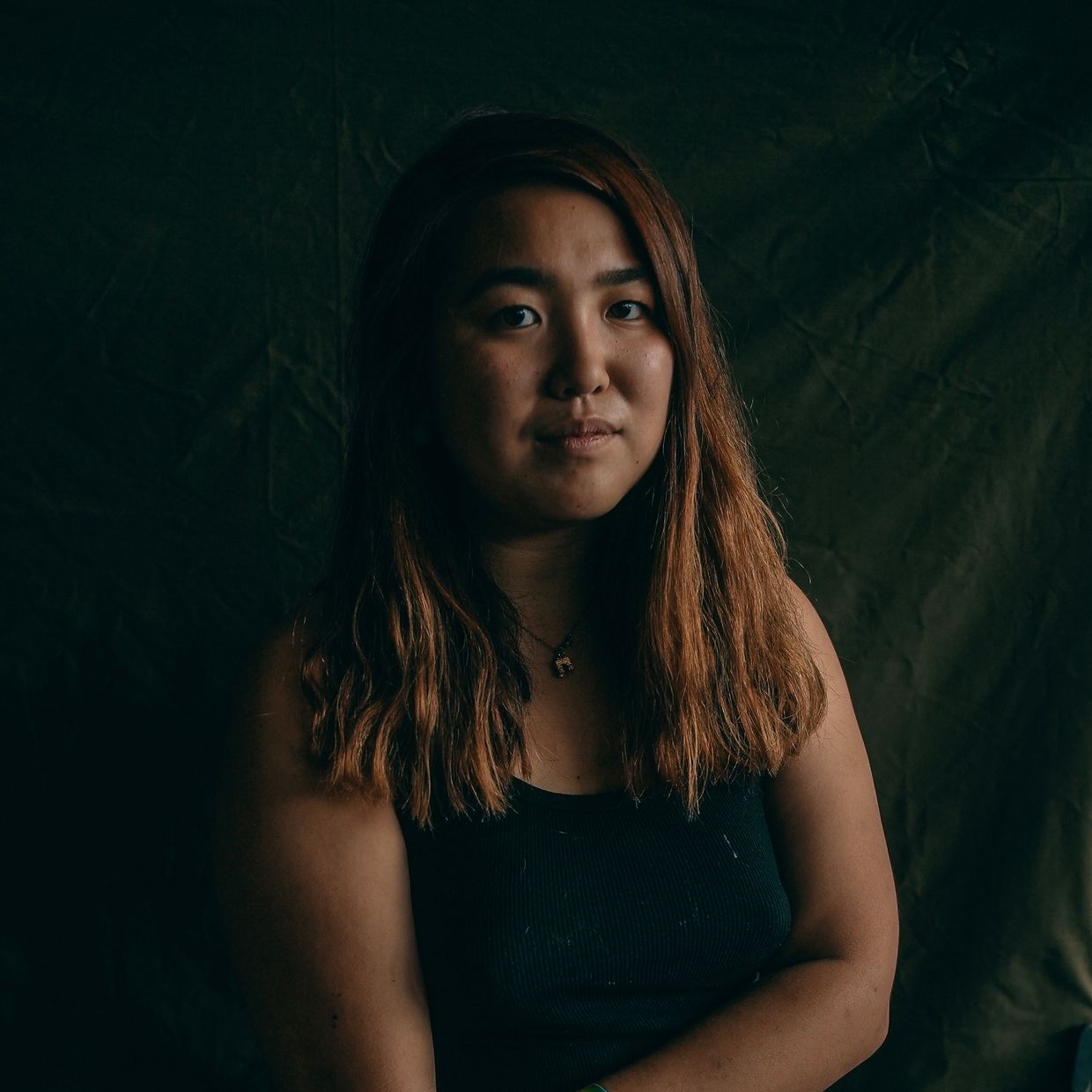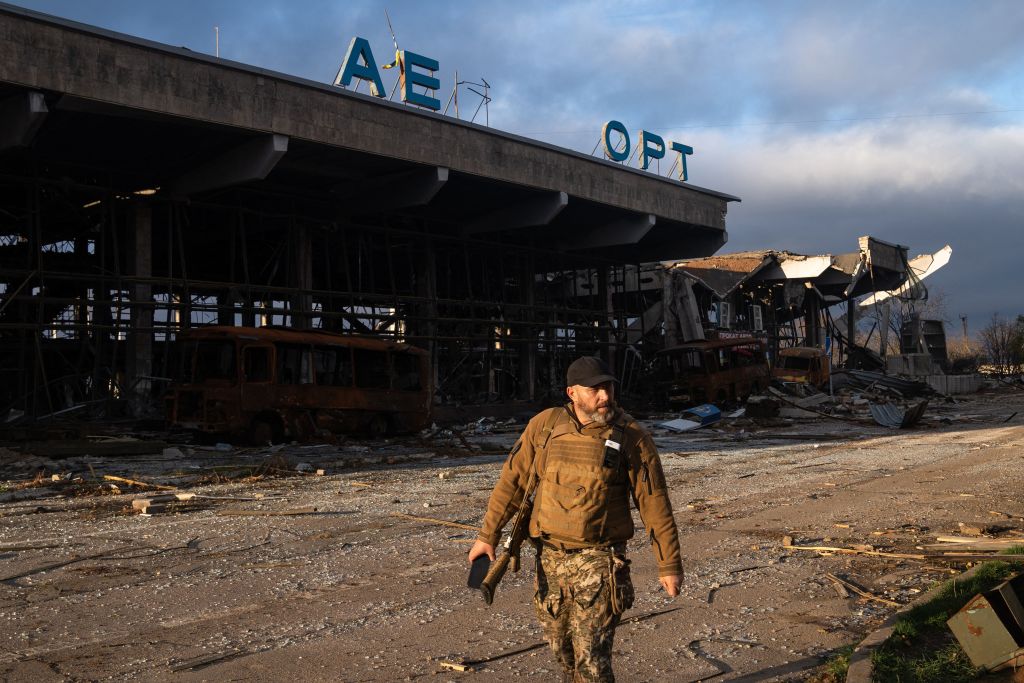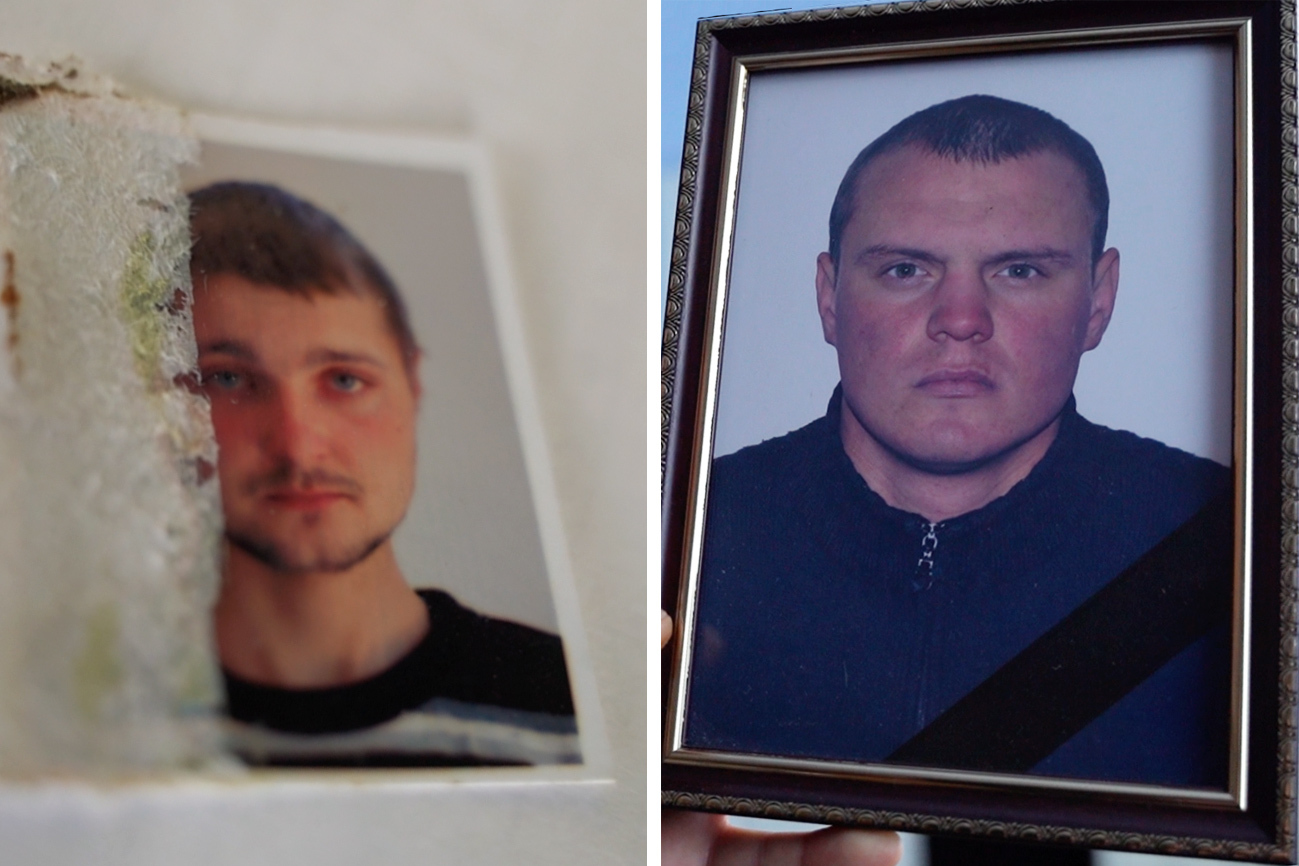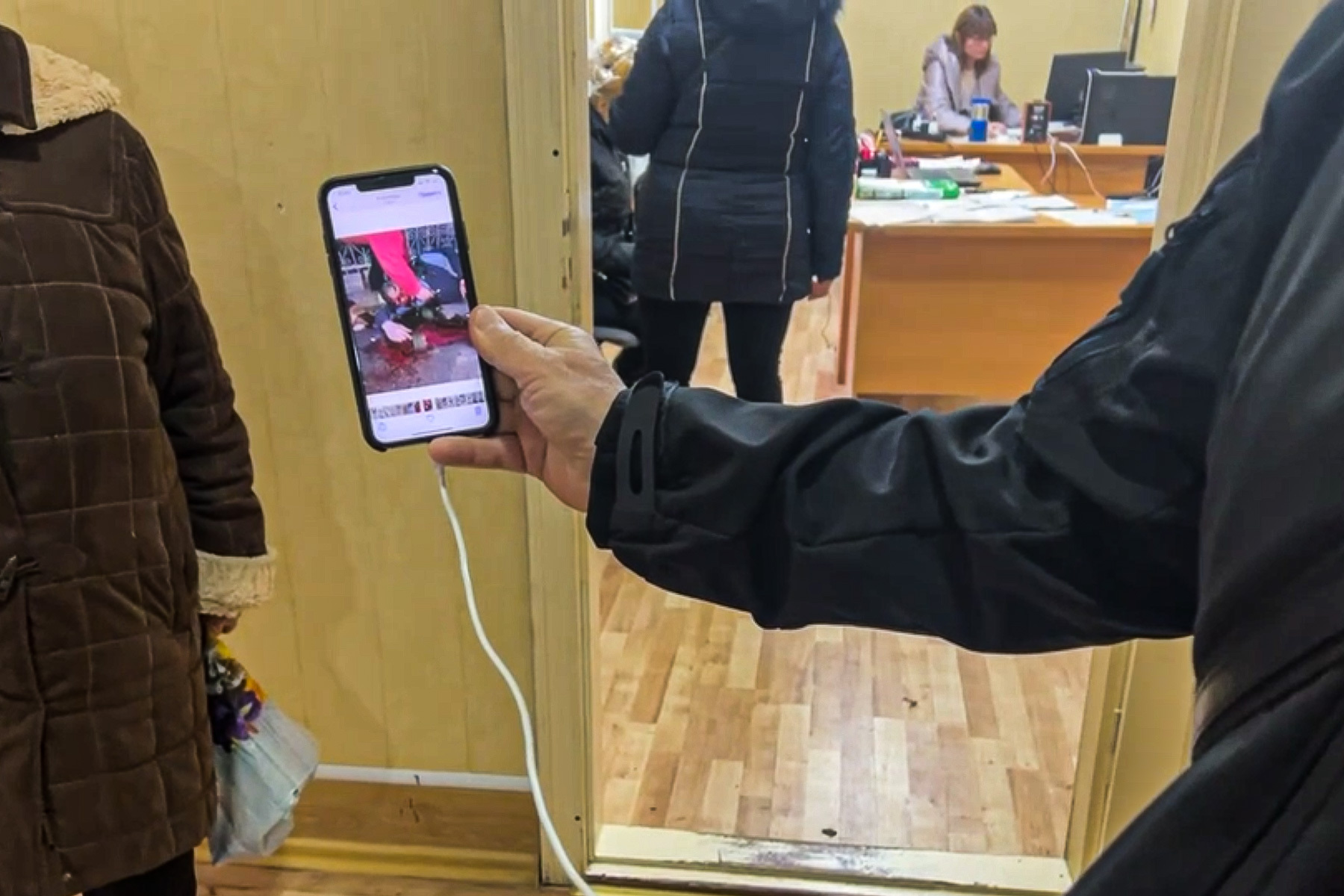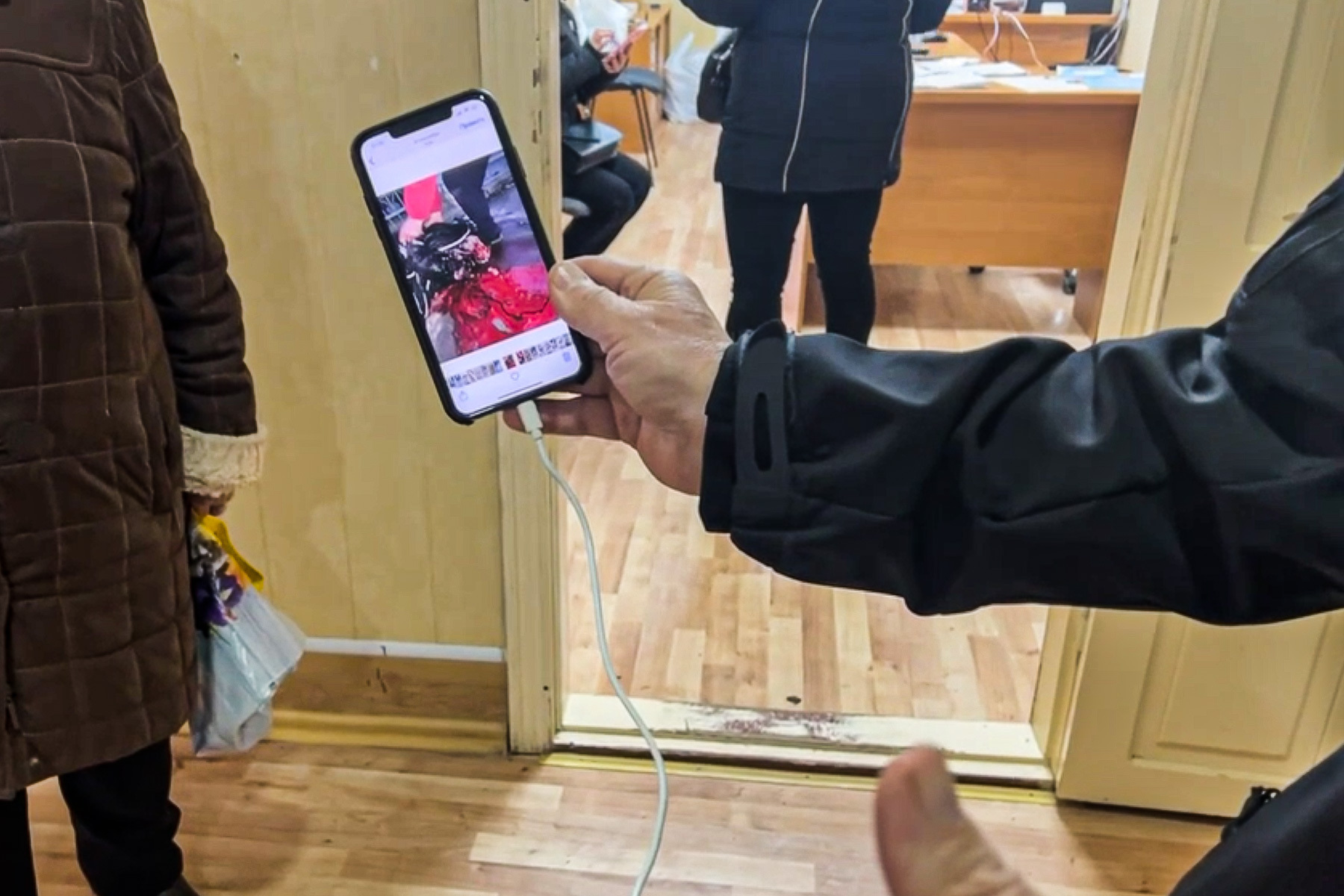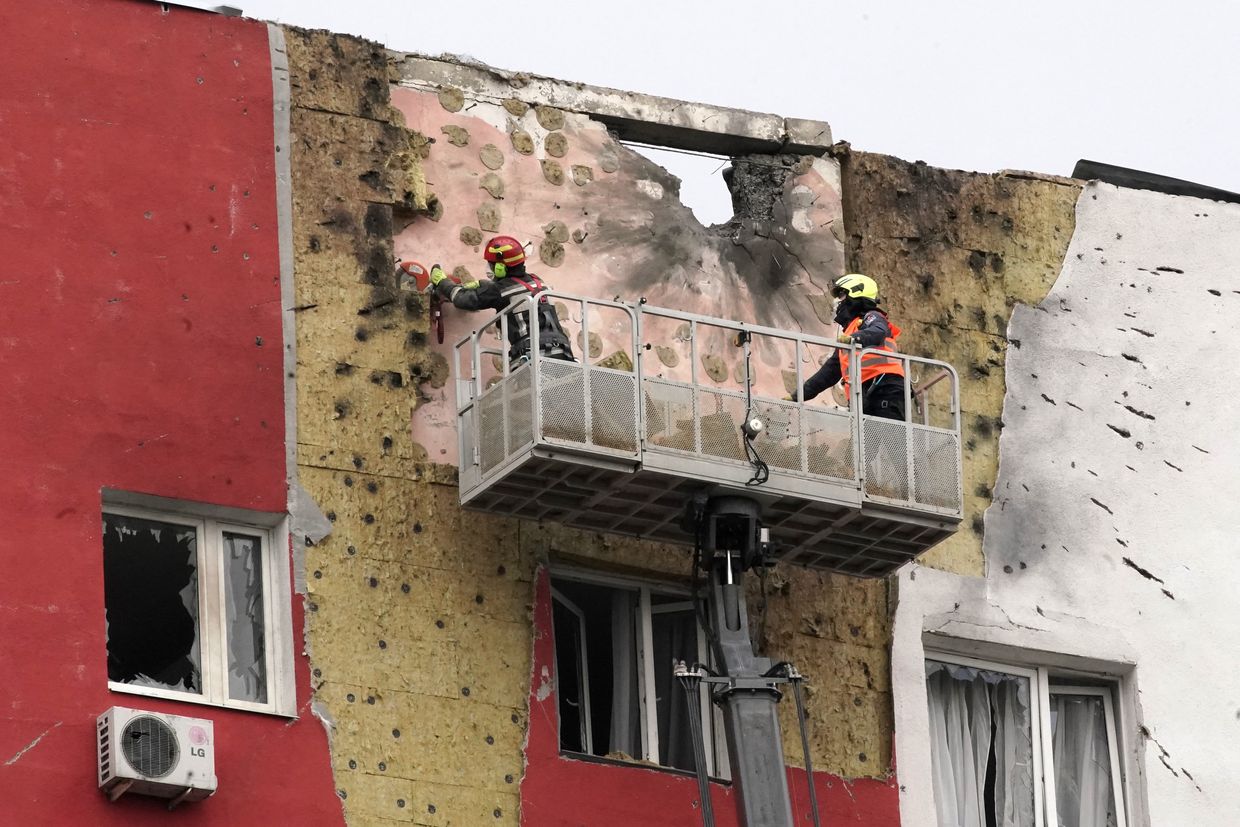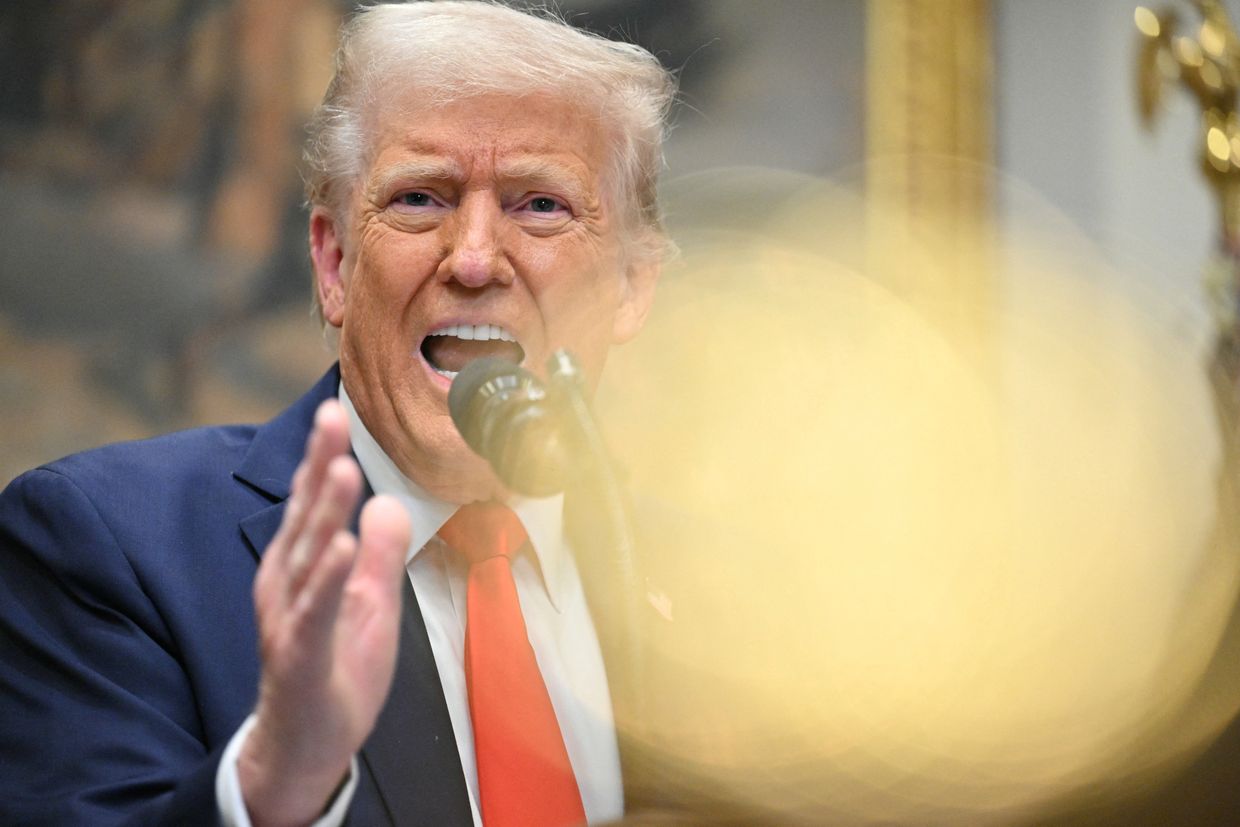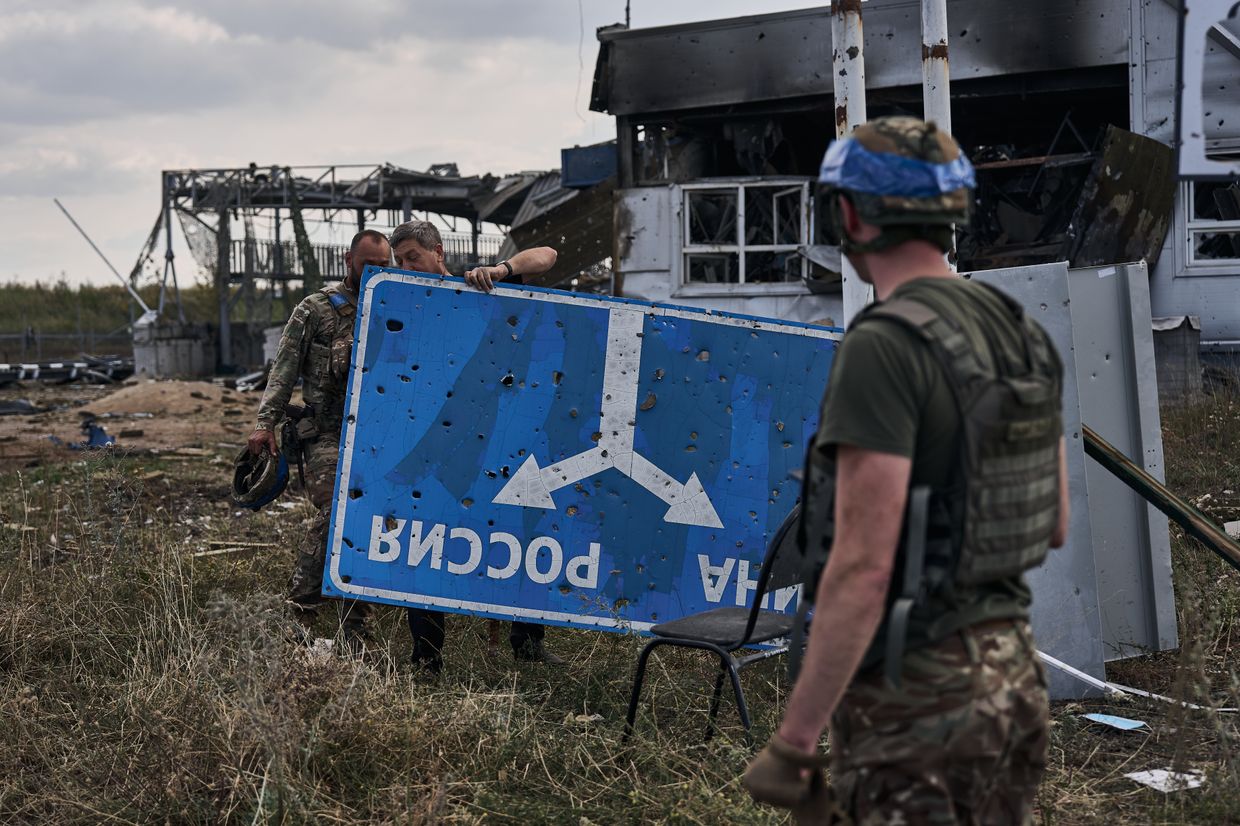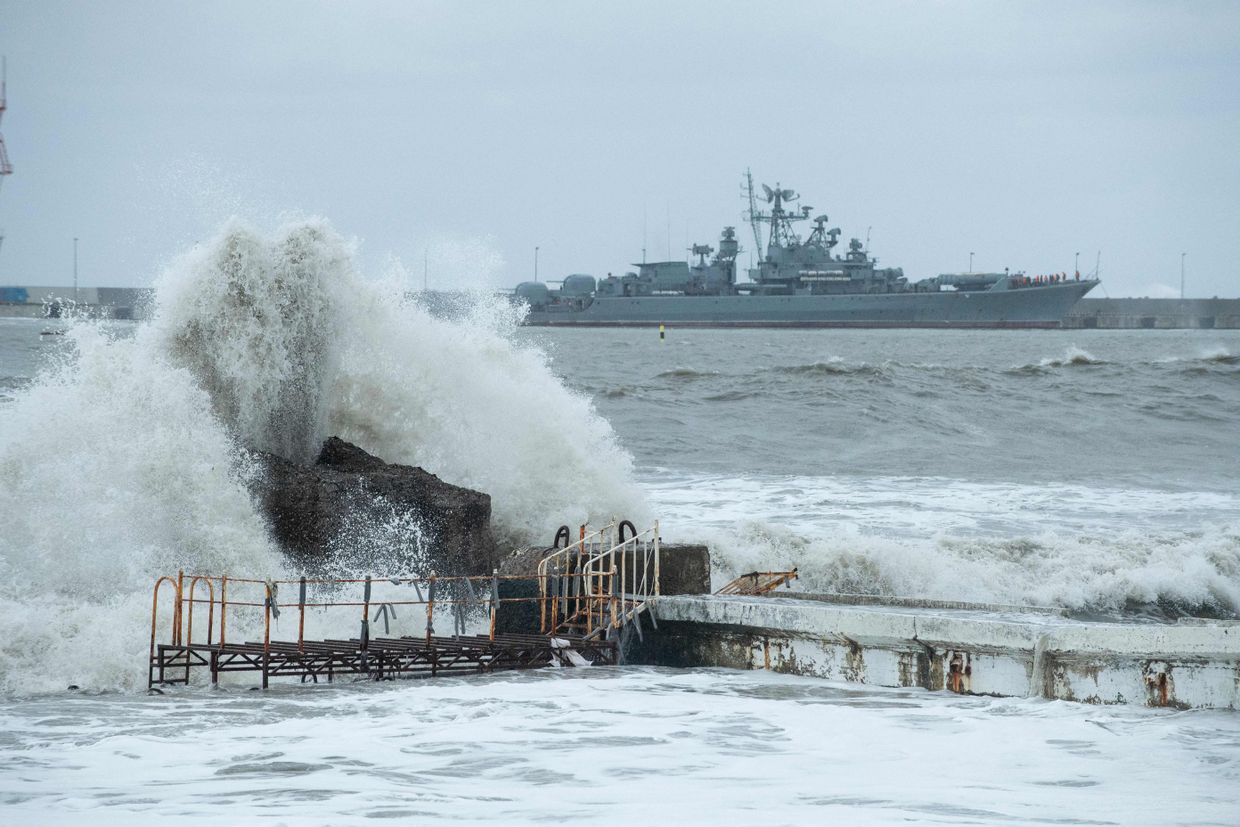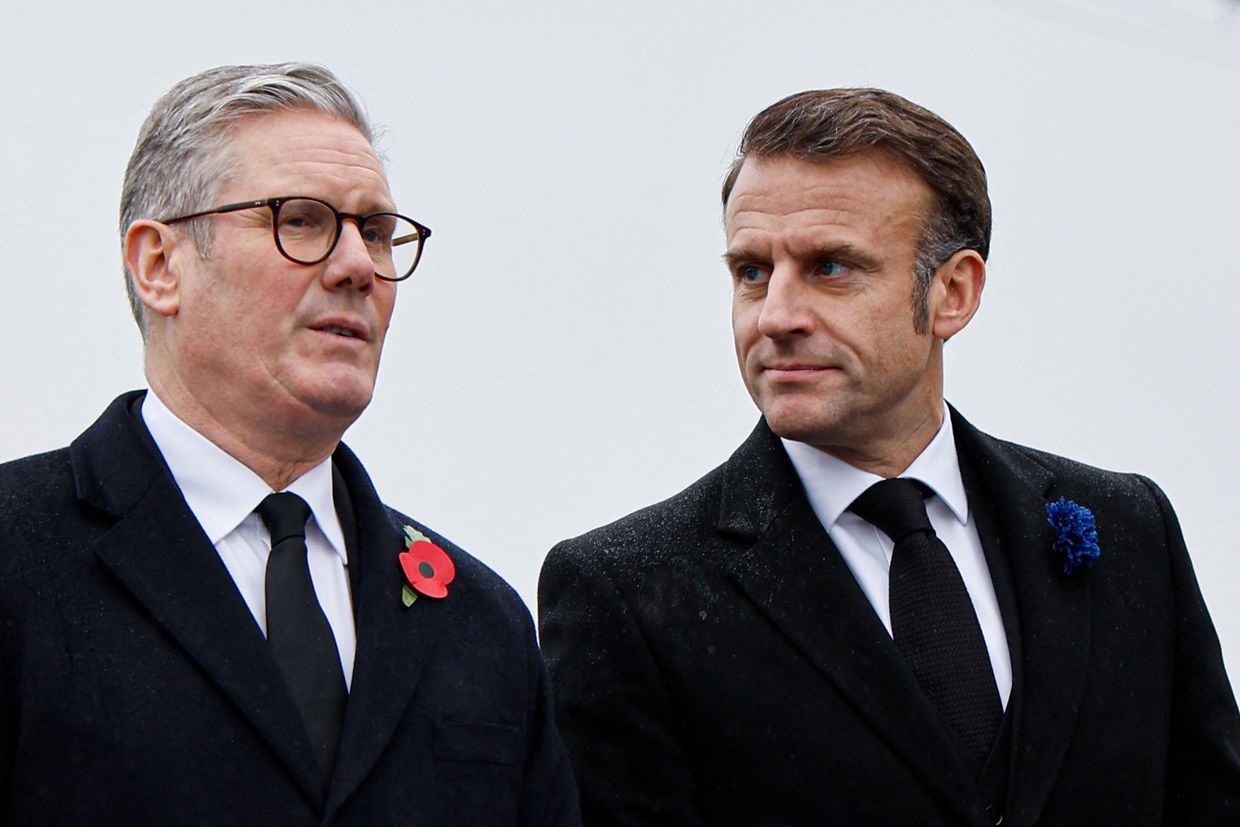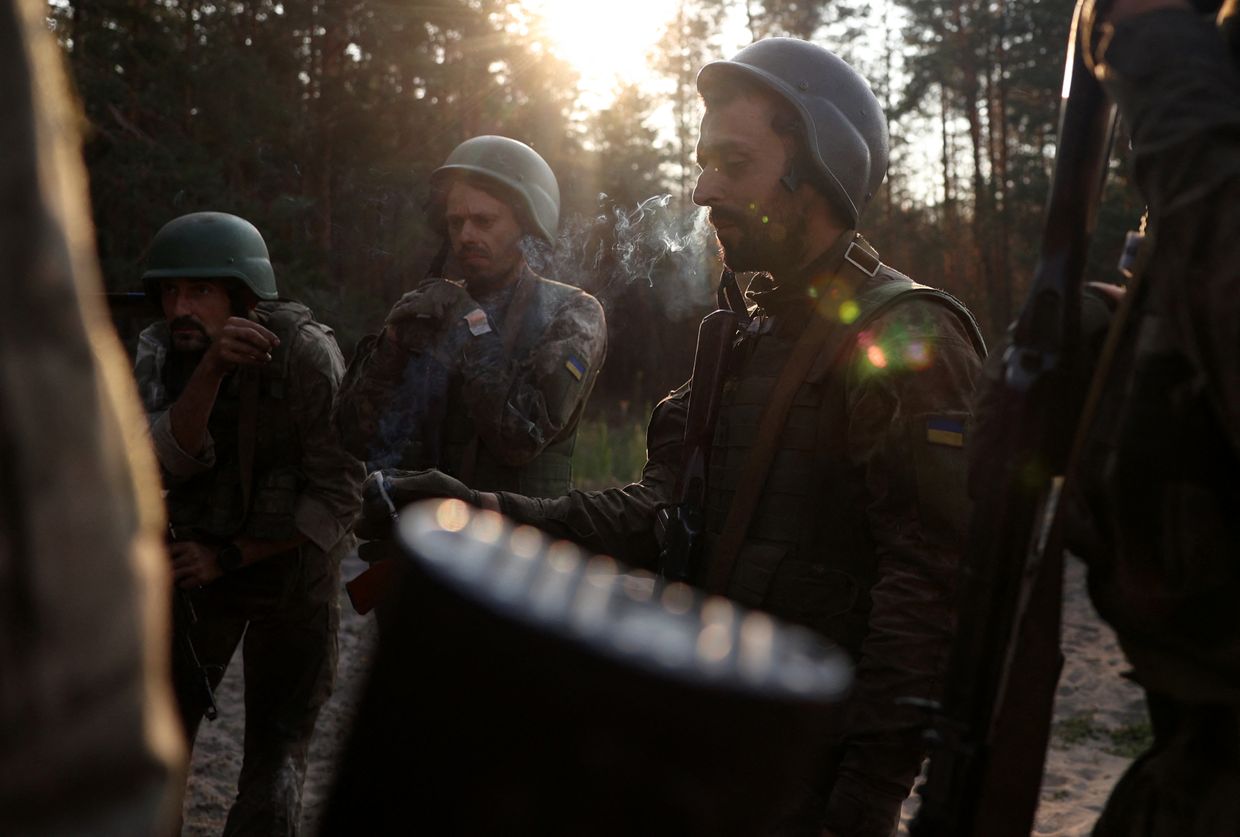Editor's note: The story contains images and descriptions that some readers may find graphic.
CHORNOBAIVKA, Kherson Oblast – Two 23-year-old friends, Volodymyr Prylutskyi and Denys Dudchenko, were in front of their old school in Chornobaivka when they were shot dead at around 4 p.m. on March 4.
The southern village, located 10 kilometers west of Kherson, was already occupied by Russia.
Prylutskyi's father and grandmother went out searching for their son, heard the gunshots, and immediately got to the crime scene.
"They were covered (in blood), and Denys' head was gone. (His) head and eyes were blown off," Prylutskyi's father, Oleksandr Prylutskyi, told the Kyiv Independent.
Blood was everywhere on the narrow concrete sidewalk. They had been shot in the head.
"I immediately understood that it was our Vovochka (Volodymyr)" after recognizing the shoes and socks, his grandmother said, bursting into tears.
"The hole in the head was clearly visible," she told the Kyiv Independent.
Chornobaivka Mayor Ihor Dudar, who was patrolling the streets that day, witnessed a red car with the Russian war symbol “Z” leaving the scene. He said he had seen the same car earlier with two masked Russian soldiers sitting inside.
The murdered men were sitting and drinking wine from bottles when the car drove by them, the mayor said, citing a witness account. Russians may have mistaken the bottles for the explosives, known as Molotov cocktails, or "wanted to do it for fun," Dudar said.
Since the morgue was closed under Russian occupation, their relatives brought the body back home.
Oleksandr Prylutskyi wiped off the blood from his son’s motionless body and spent the entire night sitting next to it in the yard.
Their relatives buried Prylutskyi and Dudchenko at a local cemetery the following day.
The village council filed a case to the Prosecutor's Office right after the murder, Dudar said.
Once an ordinary village with a pre-war population of some 10,000 people, Chornobaivka is now well known in Ukraine.
Home to the regional Kherson International Airport, the village was strategically important for Russia as a logistics hub for further operations aiming to capture Ukraine's entire Black Sea coast.
Multiple Russian attempts to land military aircraft at the airport were unsuccessful, resulting in its equipment and personnel getting destroyed by Ukrainian forces over and over again. Russia’s repeated failures in Chornobaivka became a well-known joke across Ukraine.
Still, Chornobaivka was occupied as early as late February, and those Russian troops that made it to the village terrorized the civilian population until its liberation in November.
Embattled airport
Residents, including the mayor, woke up to the explosions at the Kherson International Airport at around 5:30 a.m. on Feb. 24. There were no air raid sirens back then.
Those who decided to stay behind, particularly those living near the airport, began living in their basements due to the bombardment.
Russian troops immediately occupied the airport in late February when they got to the west bank of the Dnipro River, where the regional capital Kherson sits.
The large airdrome was attractive to Russians as an ideal storage site for equipment, including planes, helicopters, and weapons, brought from occupied Crimea.
Despite the airport's quick fall, Ukraine made it as difficult as possible for Russian forces to use the facility as they envisioned.
Starting on Feb. 27, Ukraine repeatedly bombarded the airport, destroying Russian equipment and weapons.
For Nadiia Nosovska, a resident of outer Kherson, watching the airport repeatedly get hit was almost like entertainment during difficult times.
She said she had a clear view from her garden.
"We counted up to 20 times, and then we stopped counting," Nosovska said, referring to Ukrainian attacks on Russian equipment at the airport.
As Ukraine continued its strikes and pressed deeper into occupied Kherson Oblast during the counteroffensive in the south, Moscow withdrew its equipment from the airport by late October, according to satellite images published by Ukraine’s Armed Forces.
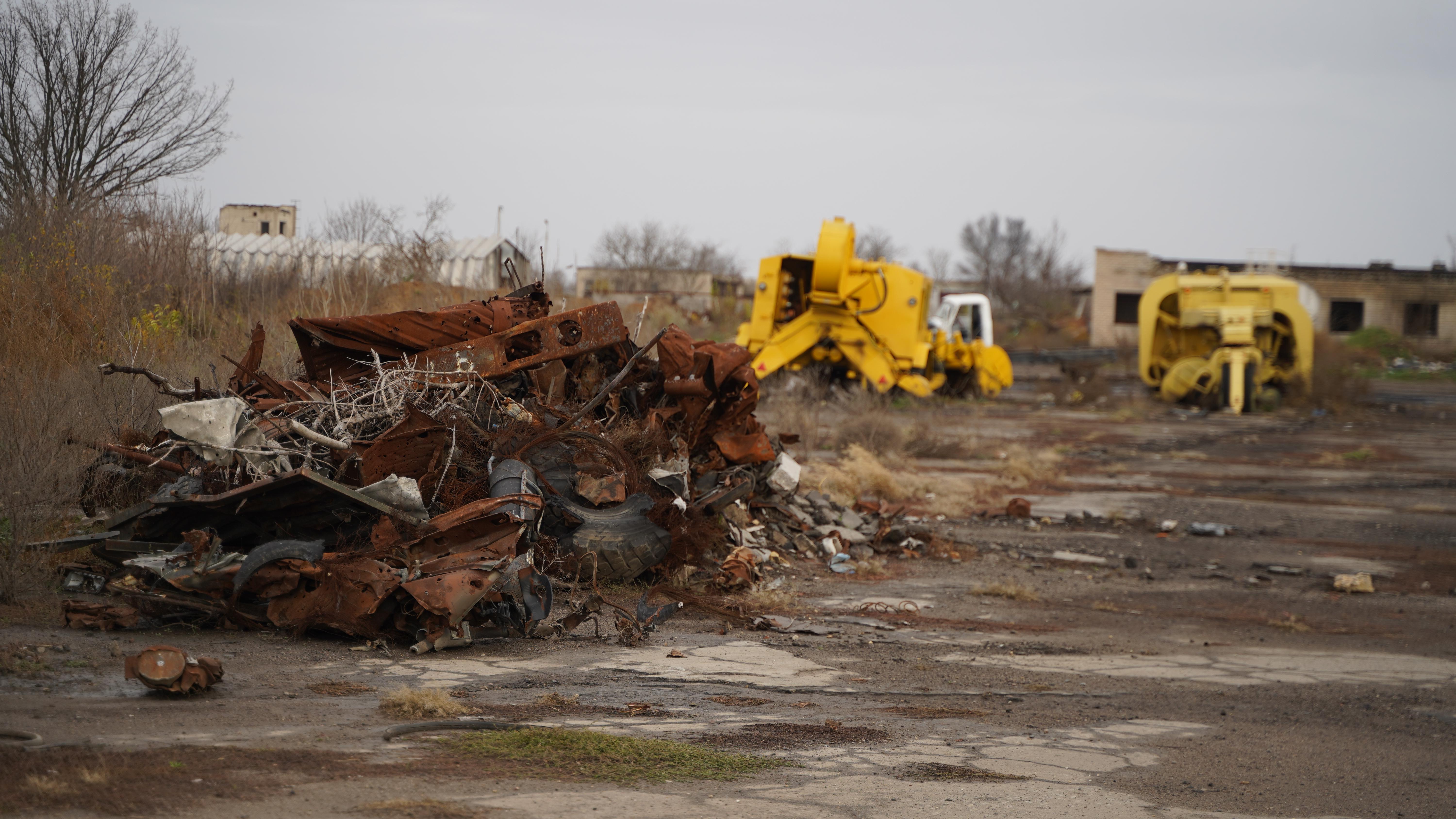
Mounting tragedies
While Russians were losing on the battlefield, as everywhere else, they were targeting unarmed civilians in Chornobaivka.
Over half of the residents were able to flee elsewhere, and many of those who remained endured abduction and suffering.
At least 18 civilians were killed, and 28 were wounded in Chornobaivka during the eight-month-long occupation, according to village council data seen by the Kyiv Independent.
Most known deaths were due to projectiles flying into victims' homes. Of 3,500 houses in Chornobaivka, 300 were destroyed, according to the local authorities.
During the occupation, Russian military vehicles and soldiers crowded the main road between Kherson and Mykolaiv, where Chornobaivka sits.
In early April, Russian soldiers struck a civilian vehicle driving at night through Chornobaivka, according to Dudar.
The mother that was trying to evacuate her two children was killed on the spot, and the children were kidnapped by Russians and moved to occupied Crimea, he claimed.
The woman's burnt-out car was found near several other destroyed vehicles on the road.
The details about the incident remain unclear, but the 11 people eventually found dead in those cars were likely all civilians, according to Dudar.
Working under occupation
For over two months after Russian forces sacked Chornobaivka, the Ukrainian flag remained on the town council, and Mayor Dudar continued his work.
Even though the village was occupied, Russian soldiers didn't walk around the center and mostly drove by and only occasionally stopped in the town.
But at some point, Dudar knew that Russians would storm into the building.
In February, he said council officials were transferring computers with sensitive information and data, such as residents' files, to a safer location.
Dudar says he took extra precautions and never spent the night in the same place. "The start of complete Russian occupation," as locals put it, came on May 2.
Early in the morning, Russian soldiers broke into the administrative building and abducted Deputy Mayor Yevhen Rodionov.
The Ukrainian flag was replaced with a Russian one, and council officials' homes were invaded, including Dudar's.
Dudar had a heart attack that day and was hospitalized in Kherson.
"The start of complete Russian occupation" meant that armed Russian soldiers began patrolling the village, both on foot and by car. Many more raids were conducted, over and over again, at the mayor's house.
Rodionov was released from captivity in late May due to reasons unknown to local officials. Many council members fled Chornobaivka around the same time.
Council Secretary Tetiana Lisna said that after breaking into her house, Russian soldiers threatened "to do something" to her mother if she didn't collaborate with them.
Since then, the Ukrainian flag was nowhere to be seen until the liberation day came on Nov. 11.
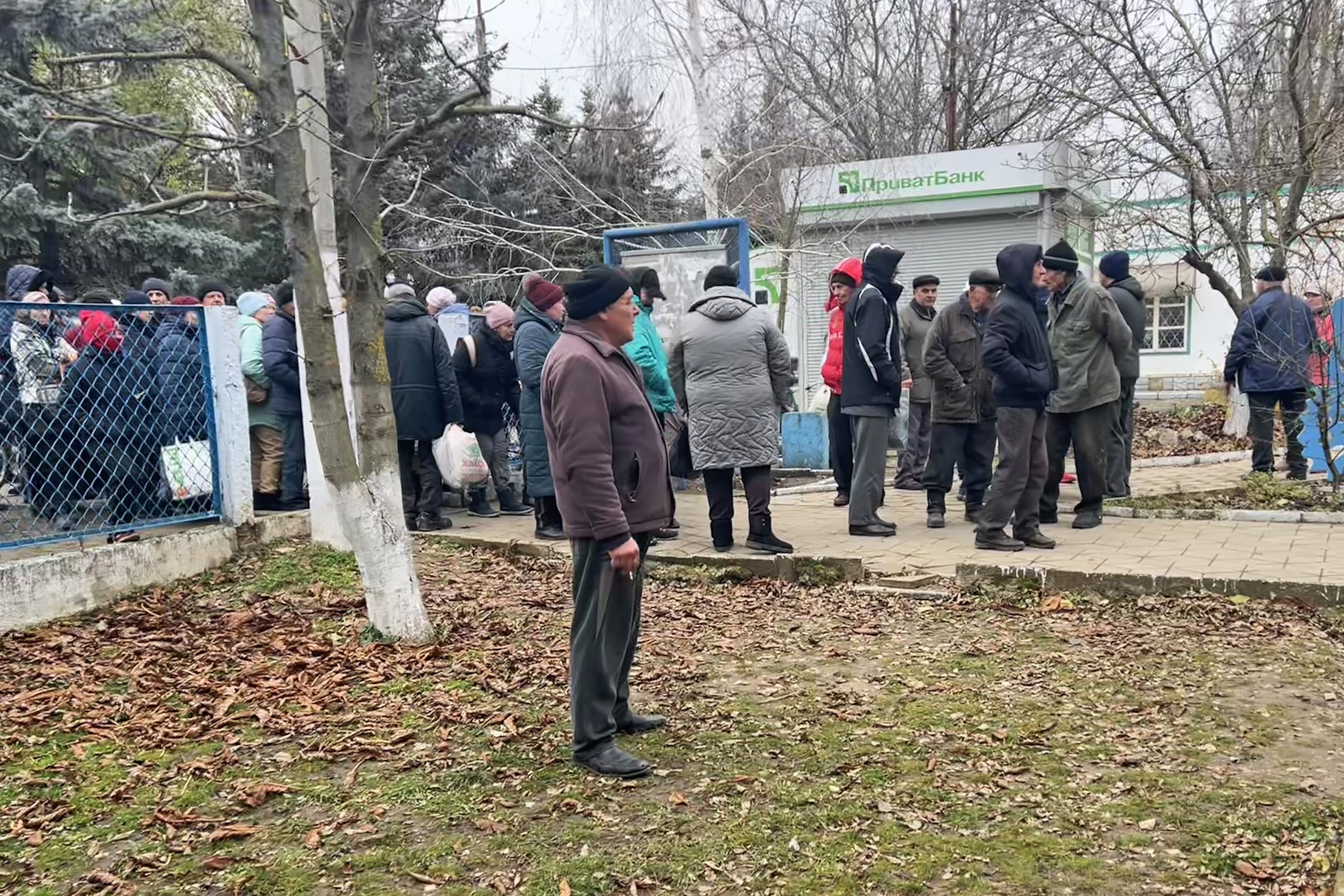
Humanitarian crisis
Even after Ukraine's military recaptured Chornobaivka amid its months-long southern counteroffensive, life remains difficult in the village.
There is still no power, water, or heating, and the residents are running out of money since most people were jobless during the Russian occupation.
Trucks with humanitarian aid, such as large bottles of water and bread, are arriving. Still, locals are disputing who should or shouldn't be allowed to receive them depending on whether they accepted Russian-provided "assistance" during the occupation.
On Nov. 23, the Ukrainian government announced that residents of liberated territories would be able to receive one-time cash assistance of $32-60 from international organizations. To apply for it, people need to fill out online forms. Thousands have signed up for the program but when the assistance will be handed out is unclear.
Every day, residents come to the administrative office seeking immediate help to feed their families. They are especially worried as a cold winter approaches, and Russian shelling of liberated areas intensifies.
Residents in the line told the Kyiv Independent that their concerns are growing as they have no details about the financial assistance they may get.
Among them was a 61-year-old ex-pilot who refused to provide his full name due to security concerns. He said he had lived through the “scary” Russian occupation alone after his family fled to the west of Ukraine.
The pensioner said he was extremely worried about the cold winter because there were still no utilities at home and the village council’s humanitarian assistance was “disorganized.”
“We are now going into winter, but we don’t know what will happen with electricity, gas, and water,” he told the Kyiv Independent.
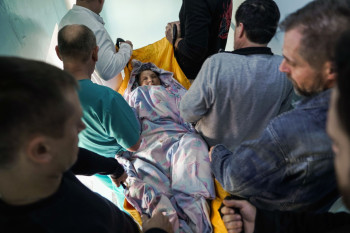
____________________
Note from the author:
Hi, this is Asami Terajima.
Thank you for reading my story. The Kyiv Independent team has been selflessly covering Russia's brutal war against Ukraine since day one, doing our best to keep the world informed about the latest developments at home. Please consider supporting our young and driven newsroom by becoming our patron.
